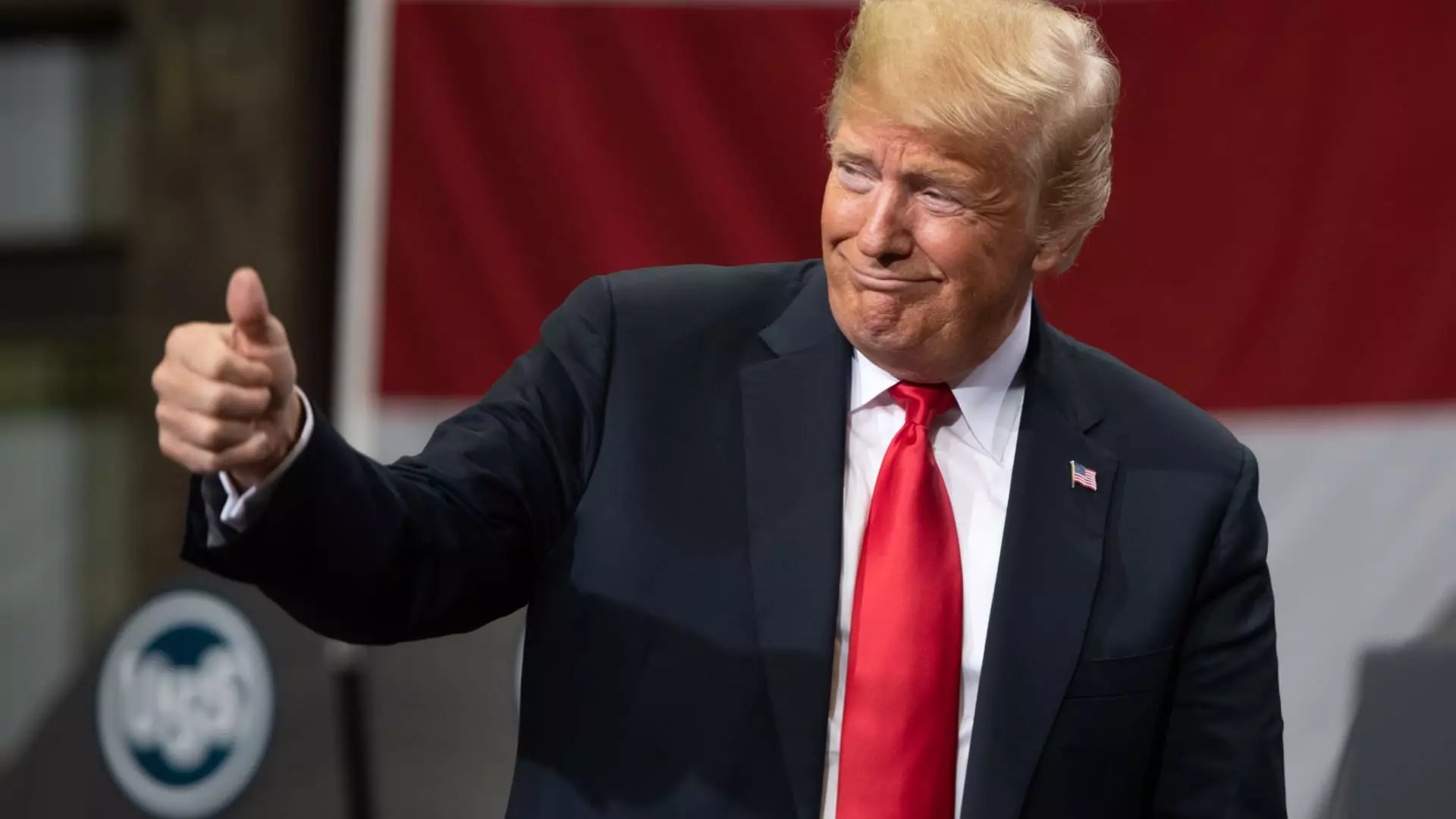The stock market is often perceived as a complex beast, swayed by a multitude of factors—economic indicators, corporate earnings, and investor sentiment. However, when political figures like former President Donald Trump interject with their opinions on investing, the narrative shifts dramatically. On one particular Wednesday, Trump’s enthusiastic call to action turned the market into a wild bull ride, leaving many investors caught between euphoria and skepticism.
As they excitedly clicked “buy” based on Trump’s posts on social media, many were likely unaware of how precarious their decisions were. This phenomenon paints an alarming picture of capitalism where presidential tweets and social media posts can send ripple effects through the financial ecosystem—a perilous addiction for those looking for quick returns.
The Allure and Illusion of Quick Riches
The stark contrast between Trump’s advice and the ensuing market response represents something beyond mere speculation; it underscores the fickle nature of investor behavior. Picture this: as the market opened, Trump exhorted investors through Truth Social, claiming it was “a great time to buy.” The sheer timing of this proclamation was not coincidental; it was a calculated move that, under the surface, reeked of a form of market manipulation.
Upon examination, it becomes painfully clear that Trump not only leveraged his position but also his own financial interests. By promoting stocks related to his brand and those he has a vested interest in, he created a financial bubble ready to burst. This blind trust—hoping that a tweet could replicate the nuances of market strategy—reveals a profound disconnect between informed trading and impulsive speculation.
Market Reactions: A Temporary Surge or Structural Flaw?
Once investors latched onto Trump’s message, the market’s trajectory took a dramatic U-turn. The SPDR S&P 500 ETF Trust saw a significant boost, with stocks skyrocketing and investors looking at impressive returns within hours. However, it’s essential to interrogate what this rise truly signifies. Was it a reflection of genuine economic potential, or merely a mirage created by political puffery?
Moreover, the scenario draws a critical connection to the inherent vulnerabilities of day trading predicated on social media hysteria. Repeated cycles of hysteria lead to rapid gains for some but also expose countless others to dire losses. These gains often come at the cost of long-term growth for the market as a whole. Stocks like Tesla and Trump Media & Technology exemplify this rollercoaster of speculative trading, showcasing how volatile a financial landscape can become when driven by rhetoric rather than fundamentals.
A Critical Eye on Investor Sentiment
Investor sentiment plays a crucial role in market dynamics, but reliance solely on knee-jerk reactions is dangerously shallow. Social forums like Reddit’s WallStreetBets buzzed with excitement and criticism, giving voice to a battleground of opinions. Some users felt empowered by Trump’s message, while others decried it as an egregious case of market manipulation. This dichotomy of views exemplifies a crucial question: are we witnessing an evolution in how the average investor engages with the market, or are we simply teetering on the edge of ruin?
The nature of investing is inherently emotional. However, reducing it to a mere speculation game driven by social media hype warps the very fabric of financial literacy. It’s troubling to consider that day trading has devolved into a form of gambling, where fortunes can be won or lost with the tap of a smartphone screen. As investors chase the next tweet, they may be inadvertently leaving behind sound investment principles that would normally guide them toward sustainable growth.
In a world increasingly dominated by instant information, it is crucial to adapt and critically reassess how we approach investing. The episode of Trump’s bullish market advice serves as a harrowing reminder: while the promise of easy returns can be tantalizing, the consequences of such trends can be disastrous. It is essential for investors—both novice and seasoned—to cultivate a balanced perspective grounded in sound research rather than whims of popular opinion. As we navigate this tumultuous landscape, fostering a return to principles of integrity and rationality is not just advisable; it’s essential for the collective financial health of our society.

